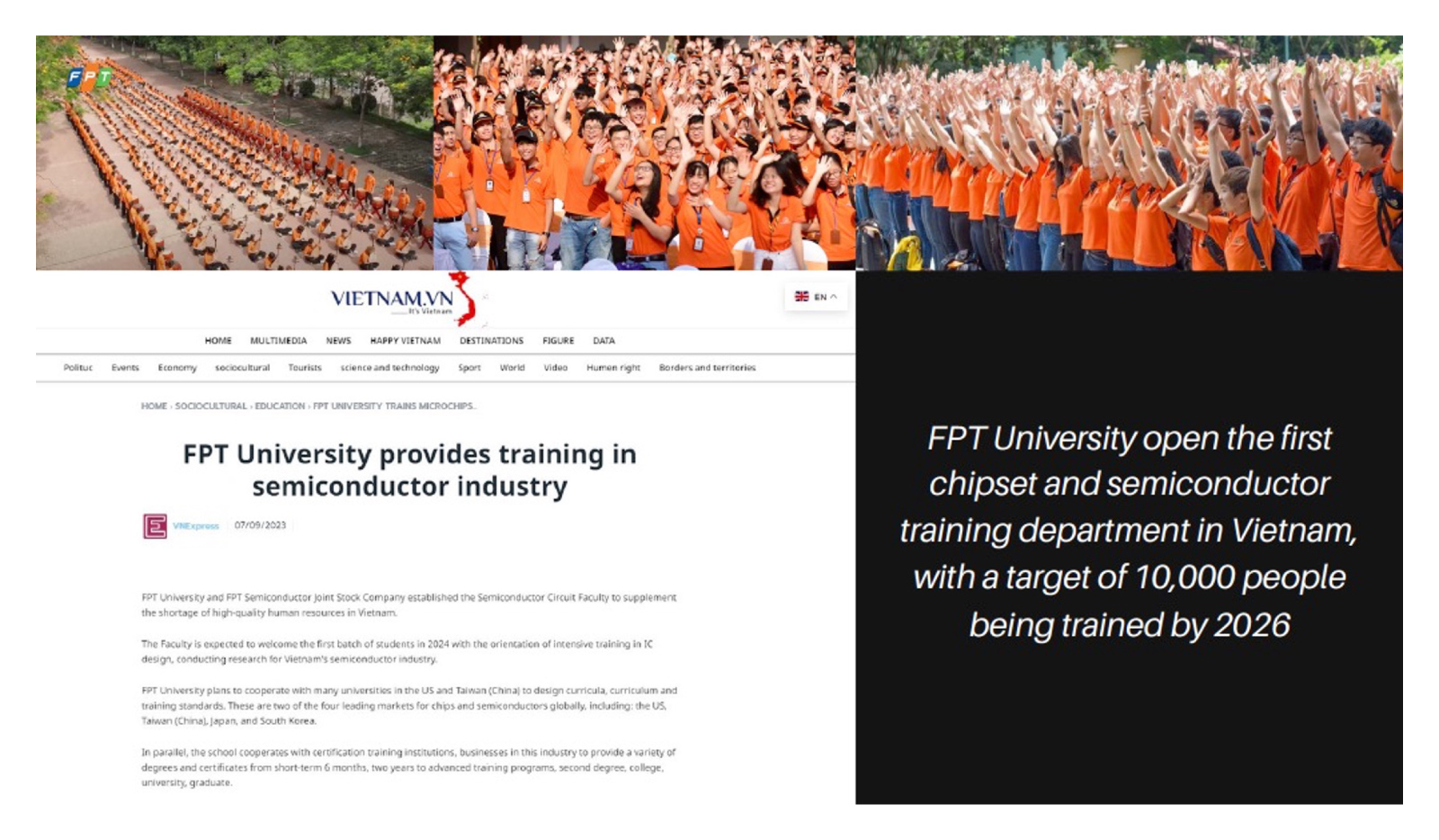

Review

FPT Corporation
FPT is Focused on Fostering Young Tech Professionals
Helping Japan by Developing Software for DX and EVs
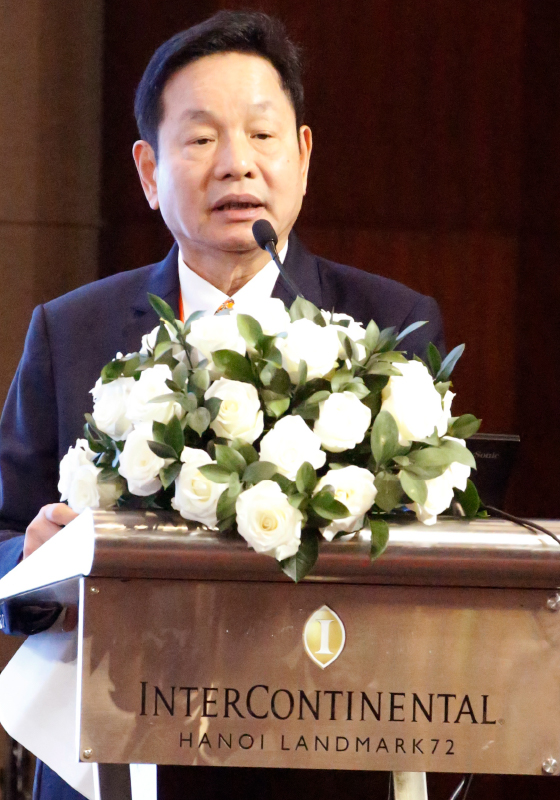
Truong Gia Binh
Chairman
FPT Corporation
This year, 2023, marks the 50th anniversary of the start of diplomatic relations between Vietnam and Japan, and is also the 35th anniversary of the founding of FPT Corporation. Truong Gia Binh, the company’s chairman said: “Japan is the country that Vietnam has the closest relationship with. It is also FPT’s biggest partner. We want to continue improving this connection with Japan and contributing to the development of both countries.”
Binh described the recent global situation as difficult, but pointed out that Vietnam has established “Comprehensive Strategic Partnerships” and friendly relations with 18 countries, including Japan. The most recent of these is with the United States. The partnership was announced in September 2023 when U.S. President Joe Biden visited Vietnam and met with Nguyen Phu Trong, General Secretary of the Communist Party.
Other strategic partners of Vietnam include China, Russia, South Korea, and India. Since formalizing a partnership with China in 2008, relations between the two countries have been good. Trong met with President Xi Jinping on a visit to China in November 2022. Binh explained: “As a country that has survived war and difficulties, Vietnam’s highest priority is peace. For this reason, Vietnam can play a unique international role, so we want to help improve relations between different countries.”
FPT’s wealth of human resources can help
to overcome Japan’s unique challenges
According to Binh, one of the big challenges for Japanese companies is that they are still dealing with many legacy systems. To make any radical changes to their operations through digital transformation (DX), they need to migrate away from legacy systems. However, he said: “There aren’t enough engineers in Japan to do this.”
FPT has proposed that young Vietnamese tech workers help to overcome this shortage of engineers. The company is now training engineers at its own university. FPT University currently boasts 180,000 enrolled students who are studying the latest technologies, including AI and big data. “All the students are learning Japanese too,” Binh added.
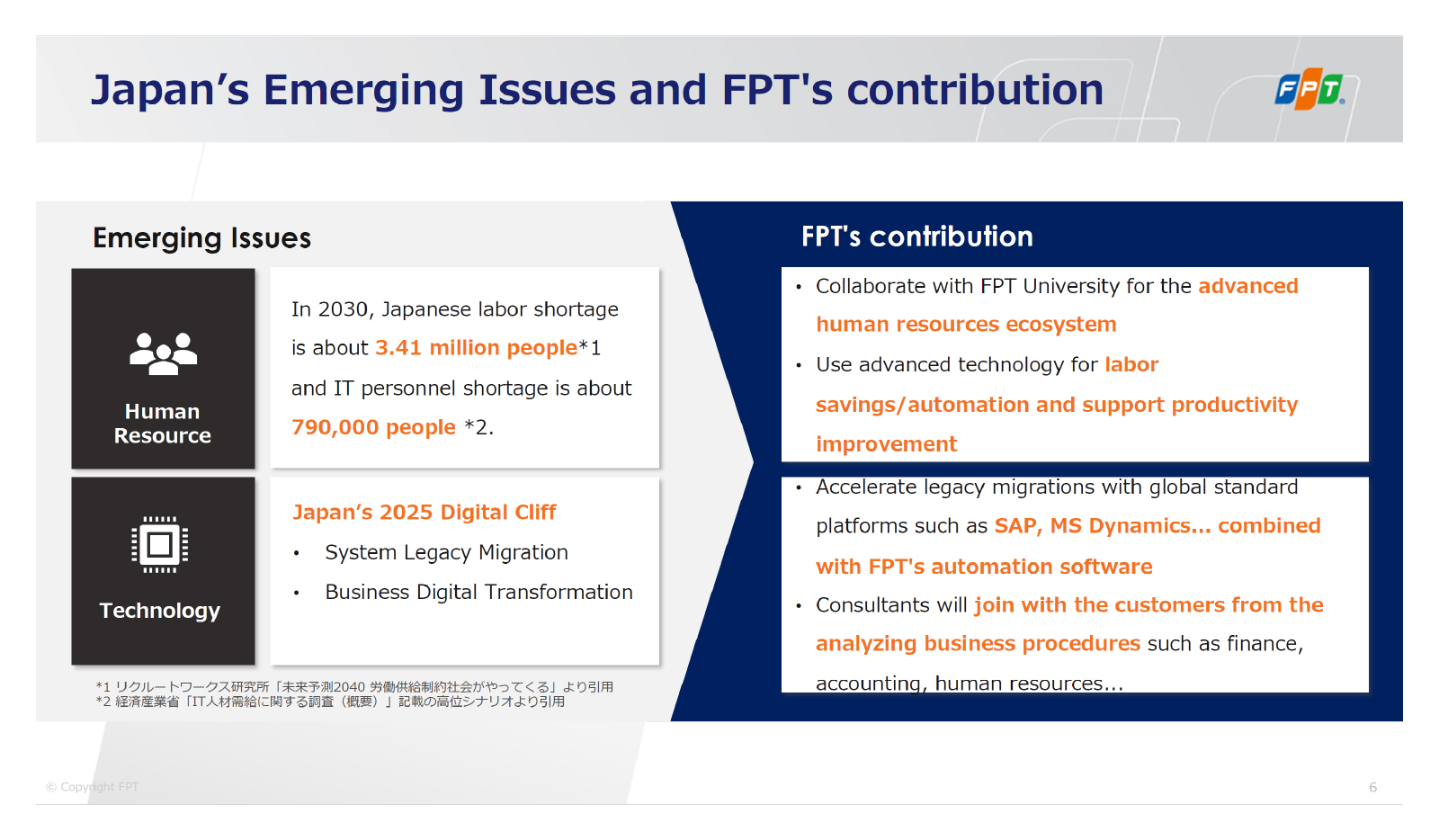
Binh also mentioned the challenges of EV (electric vehicle) development in Japan. “The country’s automotive industry has been very successful, but the future of EV development is a totally different ballgame,” he explained. “Embedded software is becoming more and more important, to the point of directly determining business success or failure. We have a high level of IT expertise and a big store of know-how from over 20 years of partnering with Japanese auto makers. So, we can definitely help out with the development of embedded software for EVs.”
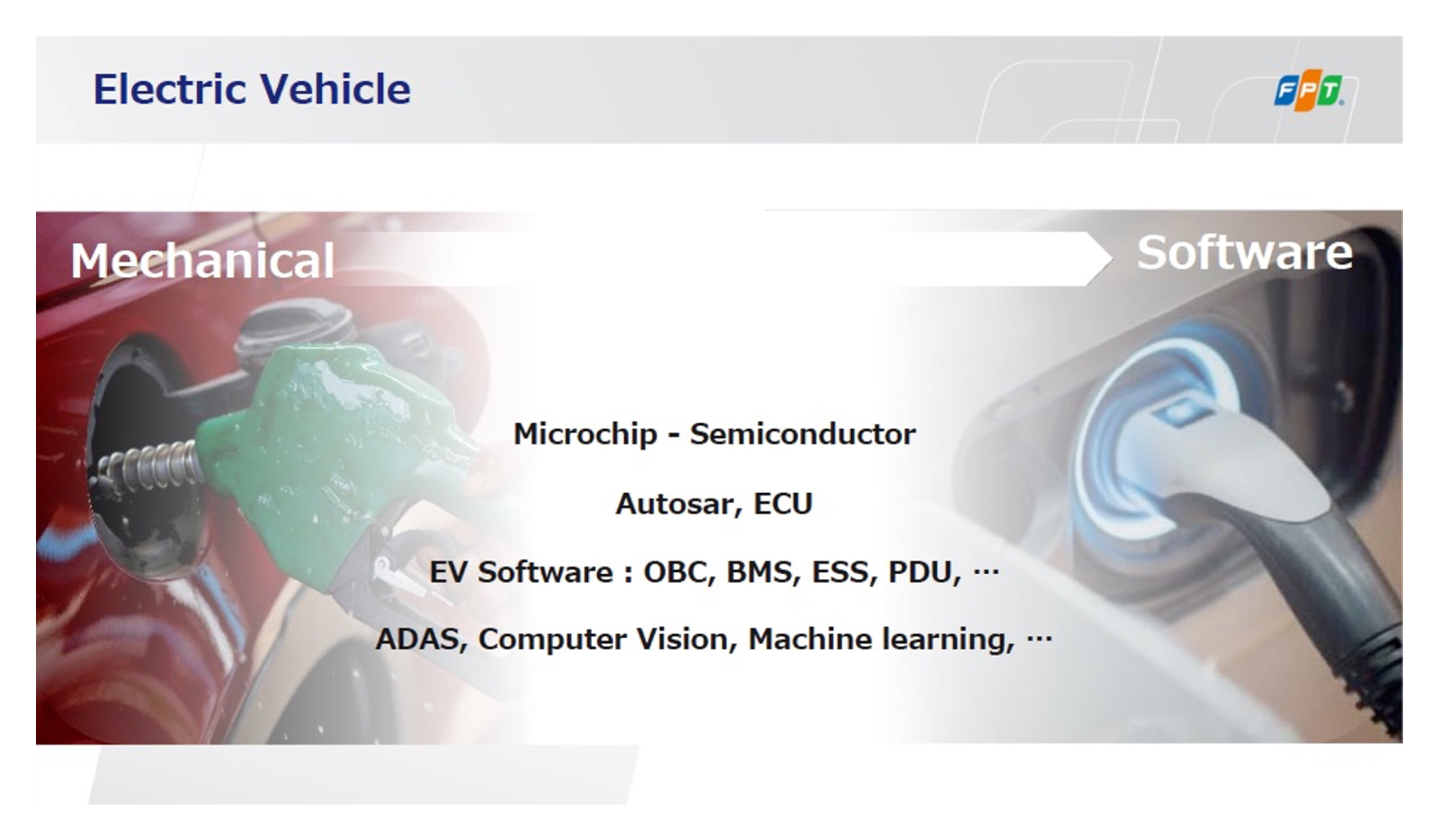
Digital transformation supports rapid expansion
of the FPT Group’s chain of drugstores
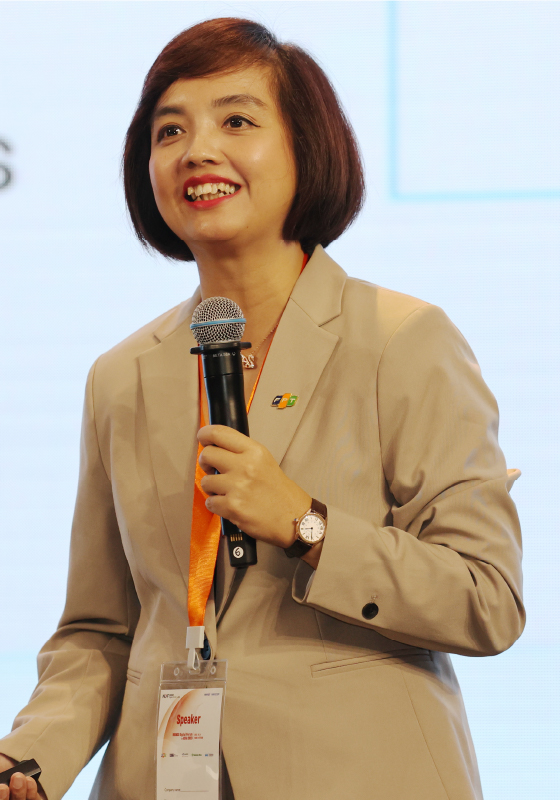
COO FPT Retail
Nguyen Do Quyen spoke about the digital transformation of the pharmacy chain FPT Long Chau, which her company acquired in 2018. FPT Retail is the company that handles the FPT Group’s retail businesses.
Although FPT Long Chau was a small chain when it joined the FPT Group in 2018, it has grown rapidly to become one of Vietnam’s largest chains, with a total of 1,500 stores across all 63 provinces, and 8,000 pharmacists. The chain now boasts a total of 15,000 Stock Keeping Units (SKUs), which are codes used to identify and track products.
Quyen explained: “The level of interest in health has grown enormously in Vietnam since the COVID-19 pandemic, dramatically driving up the number of people using drugstores.” Responding to this demand, FPT Long Chau has been expanding at a pace of 500 to 600 stores per year for the past several years.
This rapid growth has been supported by DX. Quyen said that by running all front-end and back-end systems in the cloud, all the systems needed to open a store can be prepared in minutes. Reportedly, the company can even set up sales promotions and customer loyalty campaigns in a matter of minutes.
The FPT Group uses a SaaS (software-as-a-service) demand forecasting solution called “Usee” that it developed in-house. Usee utilizes AI to optimize the allocation of products to each store. Quyen elaborated: “People often presume that we run our business the same way in all 63 provinces of Vietnam, but that is not the case. The ways in which medicine is used and ideas about healthcare vary significantly across the country, so we tailor our products and services to each region.”
Since Usee accurately forecasts customer demand, the probability that any product is out of stock when a customer requests it at a store is less than 5%, even as the number of products that the chain is handling continues to increase. Quyen explained: “Before we developed Usee, we had 50 analysts working to forecast demand. Now, with Usee, we no longer need that labor. Accuracy is also much higher.”
With its omnichannel strategy, the company is trying to offer customers a consistent experience across its physical stores, e-commerce site, call centers, and other channels. Quyen said that this allows customers to specify an item on the web store and pick it up 10 minutes later at a physical store.
Many companies in Vietnam are currently engaged in digital transformation, but few are successful according to Quyen. She explained that FPT Long Chau has succeeded because it clearly recognizes that digital technology is not something to be purchased and shown off; that it must be used for solving problems. “The purpose of technology is to make customers and employees happier. If this point is clear, DX works very well,” she said.
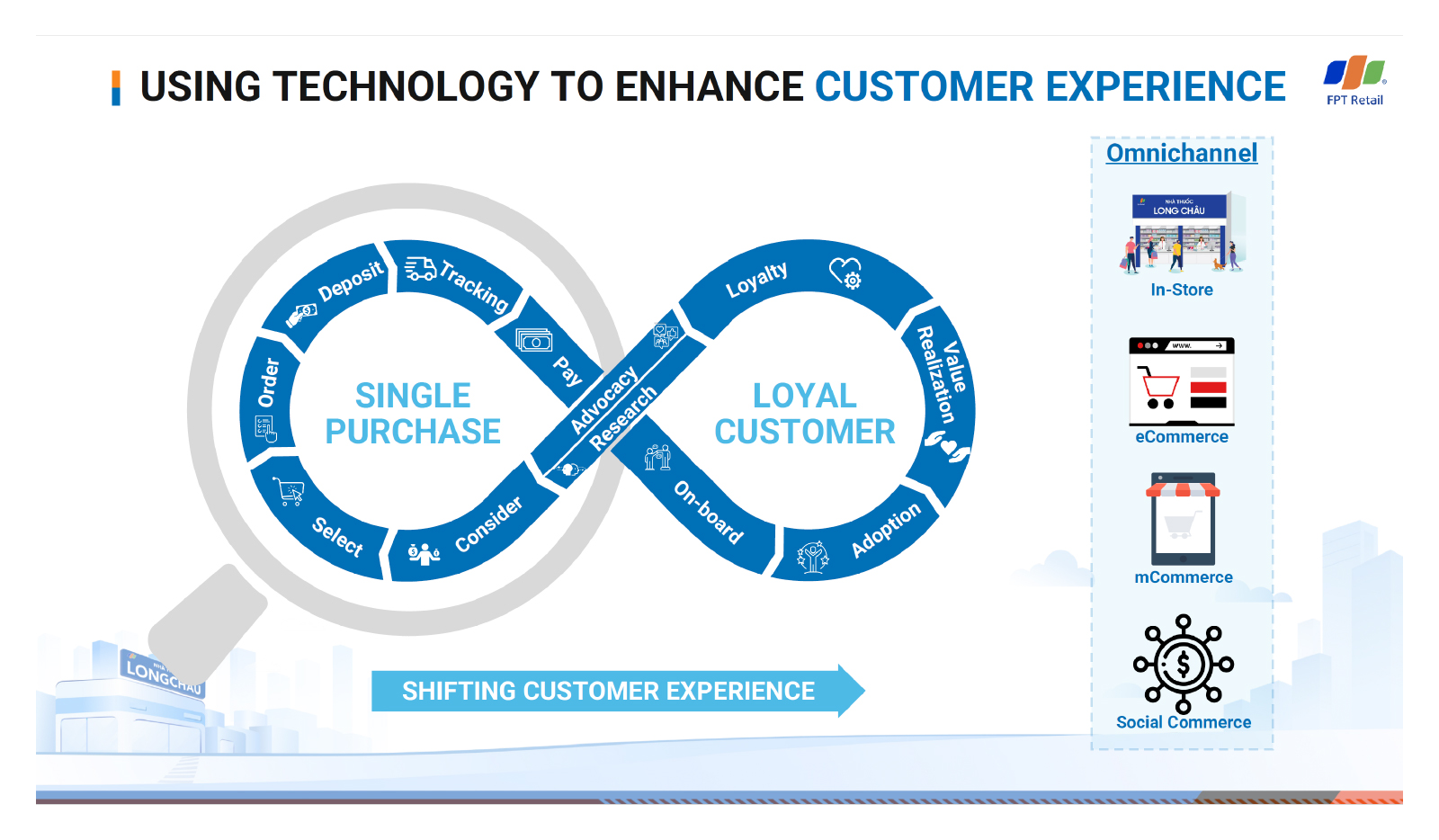
A pledge with the government to develop 100,000 semiconductor professionals by 2026
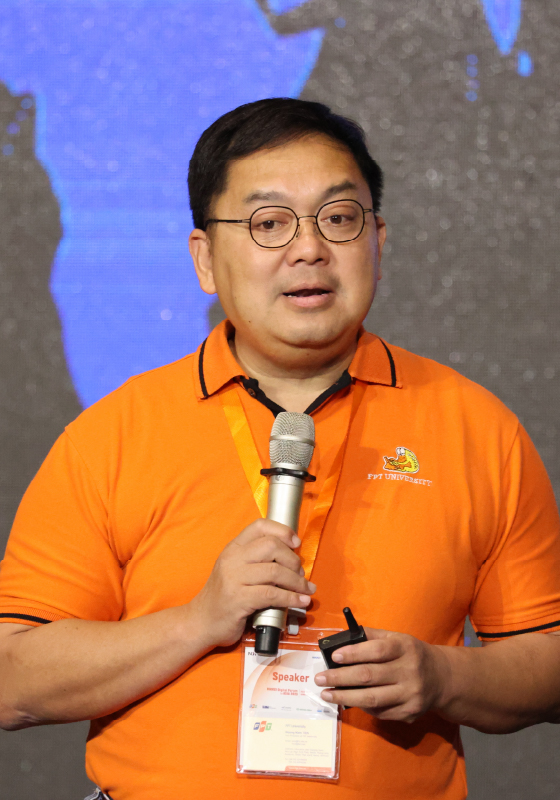
Vice President FPT University
Next up, Hoang Nam Tien spoke about the efforts of Vietnam and FPT in the semiconductor business.
Tien began his presentation with an overview of the state of global semiconductor development. “The United States. and China are the two giants, followed by Taiwan and South Korea.” He added, “With financing from Samsung Electronics of South Korea and Foxconn of Taiwan, Vietnam also has its sights set on becoming a semiconductor exporter, to the tune of around $65 billion (approx. ¥10 trillion) per year.”
Commenting on the international semiconductor market, Tien said, “Competition is now very fierce, but with the United States announcing its intention to expand its market share, it is likely to get even fiercer.” At the same time, he expressed his determination: “We are prepared to take part in this chip war, knowing full well how tough it will be.”
On Japan’s semiconductor industry, Tien said: “I hear that things are tough right now, but I have a lot of affection and respect for Toshiba and other companies for their long involvement in semiconductor development. If they move in the right direction, they should be able to get back on track.”
To increase Vietnam’s competitiveness in semiconductors, FPT University has launched a new Department of Semiconductors and Microelectronics. “Over the next three years, we will increase our student intake to 10,000. Our goal is to train people at the bachelor’s, master’s, and junior college level, to make Vietnam’s semiconductor industry stronger,” said Tien. “We have promised the government that we will produce 100,000 graduates with training in semiconductors by 2026,” he said.
The university is not limiting its CPU development to high-performance products with a large number of sockets. “Currently, CPUs with 1,000 or 10,000 sockets are available, but CPUs for controlling LEDs, hairdryers, vacuum cleaners, etc. don’t need to be so sophisticated,” said Tien. “We will also make chips that are good enough for those kinds of applications.”
FPT’s advanced expertise in embedded software development for semiconductors is another strength of Vietnam’s semiconductor business. According to Tien, Vietnam’s abundant reserves of rare-earth elements, which are essential for semiconductor manufacturing, and its large number of young engineers will serve as “a major weapon in the global chip war.”
Tien explained that Vietnam has 22 million tons of rare-earth elements ready to be excavated, the second largest reserve of any country after China. Rather than exporting rare-earth elements, the Vietnamese government believes that it should build manufacturing facilities with advanced technology to utilize the elements itself.
Finally, Tien said: “Japan has a wealth of experience and know-how in a wide variety of businesses. If we can combine this with the youthful power of Vietnam, we can wield great strength in semiconductors and many other fields. I really look forward to seeing greater cooperation between the two countries.”
